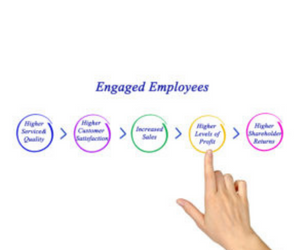Cognitive Function And Menopause
MENOPAUSE CAN IMPACT COGNITIVE FUNCTION
It’s widely recognized that menopause affects mood and sleeping. However, menopause can also have a measurable impact on how a woman performs cognitively. This includes tests used clinically for a variety of purposes, including screening for Alzheimer’s. The very good news is that a woman’s mental performance will typically bounce back when she’s past menopause.
MENOPAUSAL WOMEN WITH COGNITIVE PROBLEMS NEED REASSURANCE
Memory problems are a common and passing symptom that can accompany menopause. It would be nice to have a dollar for every woman who says, “You mean this is normal?” when reassured both that her memory problems are common at this stage in her life, and she’s almost certainly not developing Alzheimer’s Disease. it’s highly unlikely at this age that what she’s going through is anything other than temporary and relatively normal.
THE COGNITIVE DECLINE IS ESTROGEN-RELATED
We used to think that the sleep disturbances and mood changes associated with menopause were by themselves enough to explain the cognitive problems that some women experience. However, we now know that although these two factors may exacerbate the problem, the cognitive decline is really independent of them. Estrogen has an impact on memory areas of the brain, and we know, for example, that when a woman has her ovaries surgically removed, she’ll experience a memory decline that gets reversed when she’s given estrogen.
EXERCISE IS LIKELY TO HELP REDUCE HER SYMPTOMS
A number of very good clinical trials show that memory problems during menopause alleviated with exercise. This is also true for memory problems later in life. This doesn’t have to be marathon running. Moderate exercise three or four times a week for 40 minutes can make an important difference.
The exercise doesn’t have to be all at once. It can be spread throughout the day, and can include such things as walking up stairs, parking several blocks away, or just going for a brisk walk.
THERE’S A LOT OF ADDITIONAL THINGS A PATIENT CAN DO TO ALLEVIATE HER MEMORY PROBLEMS
Avoiding excess alcohol is also good for the brain. The guidelines for moderate drinking are one drink a day for women and two drinks per day for men. Binge drinking for women is defined as four drinks in 2 hours. A little bit of alcohol, particularly red wine, appears to be good for the brain but it doesn’t take much to exceed standards.
Good sleep hygiene can also help menopausal memory problems. Avoid excess alcohol and caffeine. In addition, it’s important not to be looking at screens, such as an iPhone or iPad before bed. It will interfere with normal sleep. The bright screens emit blue light, which can make your pineal gland act as if it’s daytime.
Stress and anxiety can impair memory. There is good evidence that stress reduction such as yoga can help.
Cultivating her social network may also help. We know that people with extensive social networks frequently do better on memory tests.
In the case of women who have moderate to severe night sweats or hot flashes, use of hormone therapy (HT) will probably mean better sleep and better mood. Additionally,- her memory will benefit indirectly. A variety of well-done studies show no direct benefit to memory from taking HT during menopause but those studies have not specifically enrolled women with moderate-to-severe hot flashes so we still don’t know definitively if HT has a direct benefit on brain function in women who are most likely to use HT.
We don’t have good evidence that vitamins or supplements will help with memory problems. However, there is surprisingly good data showing that a Mediterranean diet can be helpful.
WOMEN ARE GOOD AT EVALUATING THEIR OWN COGNITIVE FUNCTION
We know from cognitive tests that menopausal women’s assessments of their own memory during menopause tend to be quite accurate. If you ask a patient, “How good is your memory,” and she answers, “Good,” you can usually take her at her word because she’s highly likely to perform well on the cognitive tests. Conversely, if she tells you, “My memory is poor,” she’s likely to do poorly on the tests. This is also true of elderly women. The exception that in some cases of dementia, the part of the brain that evaluates memory has deteriorated, and in that case, the individual cannot judge her own memory.
WORRY ABOUT COGNITIVE FUNCTION MAY MOTIVATE IMPROVED LIFESTYLE
Because her memory is important to her, when you discuss the link between her lifestyle and her memory problems, this may motivate her to make changes she hasn’t made up to now.
Search Articles
Latest Articles
Mitzi Perdue Transformational Leadership Lessons Learned In Life
Mitzi-Perdue Transformational Leadership Lessons Learned In LifeAbout The PodcastUnscripted, real, transparent information and interviews from Wes Schaeffer, The Business Fixer, to help you master inbound marketing and generate more inbound sales that close faster,...
Mitzi Perdue | Author | 10-20-24
Mitzi Perdue | Author | 10-20-24Watch The Episode About The Episode Mitzi Perdue | Author | 10-20-24 Learn more about your ad choices. Visit megaphone.fm/adchoicesAbout The PodcastHosted by John Catsimatidis every Sunday at 8 a.m., The Cats Roundtable mixes common...
Tessa Adams’ Journey to Create a Safe, Supportive Online Community for Mental Health
https://foreignpress.org/journalism-resources/tessa-adams-journey-to-create-a-safe-supportive-online-community-for-mental-health Publication –foreignpress.org
Arming Ukrainian Soldiers with Poetry and Humor
https://foreignpress.org/journalism-resources/arming-ukrainian-soldiers-with-poetry-and-humor Publication –foreignpress.org
Subscribe to Updates
About Author

Mitzi Perdue is the widow of the poultry magnate, Frank Perdue. She’s the author of How To Make Your Family Business Last and 52 Tips to Combat Human Trafficking. Contact her at www.MitziPerdue.com
All Articles
Employee Engagement – Gallup Really Knows!
Employee Engagement - Gallup Really Knows!Visit Gallup, the People Who Really Know There are 1.3 billion full-time employees in the world. Give a guess: how many feel enthusiastic about and committed to their work? 1) 13% 2) 30% 3) 82% 4) How the heck could anybody...
Recurrent Vaginitis
Recurrent VaginitisMOST WOMEN WILL AT SOME TIME EXPERIENCE VAGINITIS At some point in their lives, most women will experience vaginitis. It’s one of the most common gynecologic condition encountered in the office. Typically, it comes about when the yeast or bacteria...
Take Action: Beating Your Competitors
Take Action: Beating Your Competitors Act Faster Than Your Competitors The super-successful people I’ve known have all had a huge propensity for action. They had tremendous agility in carrying out projects rapidly. I remember one night in late 1951, my father Ernest...
Transforming Cardiovascular Disease Prevention In Women
Transforming Cardiovascular Disease Prevention In WomenCARDIOVASCULAR DISEASE (CVD) IS USA’S LEADING CAUSE OF DEATH FOR WOMEN One in four women will die of CVD, and to put this in perspective, the annual CVD mortality for women is double that of all forms of cancer...
Obesity In Women: New Insights
Obesity In Women: New InsightsOBESITY HAS MORE IMPACT THAN ANY OTHER CHRONIC DISEASE Obesity has enormous impact, partly because it is so widespread and partly because it exacerbates so many other disease states. In the US, there are 93 million Americans with...
Fingernail Infections
Fingernail InfectionsFINGERNAIL INFECTIONS AFFECT WOMEN MORE THAN MEN In contrast to toenail infections, fingernail infections, especially those caused by candida, impact more women than men. This happens because often women’s jobs as housekeepers or dishwashers...



